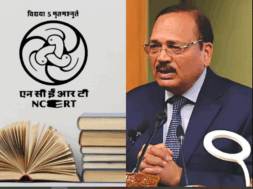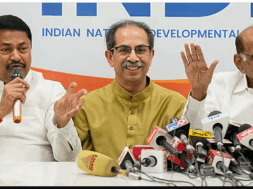
Law Minister Blames Supreme Court-Favoured Collegium System for Pendency of Cases
Manas Dasgupta
NEW DELHI, Dec 15: The union law minister Kiren Rijiju, a strong critic of the current Collegium System for the appointment of judges in the High Courts and Supreme Court, on Thursday squarely blamed the apex court for the increasing number of pending cases.
Expressing concern that the number of pending cases across the country would cross five crores mark in the next couple of months, Rijiju said while the government on its part was taking all possible measures to reduce the pendency of the cases, the main reason for the glut was the shortage of judges in the appointments of which the government has a very limited role to play.
Rijiju’s hitting out at the apex court comes in the middle of a war of words between the government and the Supreme Court over the appointment of judges. While the government, and on its behalf the law minister, had been vociferously criticising the Collegium System in which the government has no representation, the Supreme Court was annoyed that the government was ignoring the recommendations of the Collegium for the appointment of High Court and Supreme Court judges and deliberately delaying their appointments to stamp its dissatisfaction over the system in which only five senior most judges of the apex court who constitute the Collegium decide on the appointment of judges.
Mr Rijiju on Thursday was responding to a question in parliament on the large number of pending cases when he doubled down on his criticism of the Collegium system of appointing judges. He said it was worrying that more than five crore cases are pending across the country but the basic reason was the appointment of judges.
“To tackle pendency, we (the government) are being supportive. But until the procedure for appointments is changed, questions regarding pendency and vacancies will be raised,” he said in response. According to Rijiju, the main reason for pendency is the issue of appointment of judges.
“The government took many steps to reduce pendency of cases, but the government has a very limited role in filling vacancies of judges. The collegium chooses names, and apart from that, the government has no right to appoint judges,” Mr Rijiju said.
He said the government had often conveyed to the Chief Justice of India and High Court Chief Justices to “send names (of judges) that reflect quality and India’s diversity and give proper representation to women.” But the current system did not reflect the sentiment of parliament or the people, he remarked.
“I don’t want to say much as it may seem like the government interfering in the judiciary. But the spirit of the Constitution says it is the government’s right to appoint judges. It changed after 1993,” he said. Mr Rijiju also referred to the National Judicial Appointments Commission (NJAC) Act brought in 2014, which was scrapped by the Supreme Court in 2015.
The Minister who recently called the Collegium System “alien” to the Indian constitution, added, “Unless the procedure of the appointment of judges changes, the issue of high judicial vacancies will keep cropping up,” blaming the judiciary for yawning gap between the cases filed and the cases resolved.
On the National Judicial Appointments Commission, which was struck down by the Supreme Court in 2015, the Minister claimed that several retired Judges and legal luminaries have expressed their opinion that rejection of the NJAC by the Apex Court was not the right decision. He pointed out that Parliament had passed the National Judicial Appointments Commission (NJAC) Act in 2014, which was approved by two-thirds of the states as well. Further, he stated,
“The Government has taken numerous steps to tackle pendency. Without referring to those (for paucity of time), I want to say that right now, the government has very limited power to fill vacancies. We only approve the names recommended by the Collegium. We have no authority to look for and recommend judges ourselves.”
Reiterating that the government should have a bigger role in appointing judges, he said, “I don’t want to comment on the Court, because it might seem like government interference. But if you see the Constitution, the process of appointment of judges was the right of the government.” He, however, did not give a categorical reply to the question whether the government planned to revive the NJAC.














